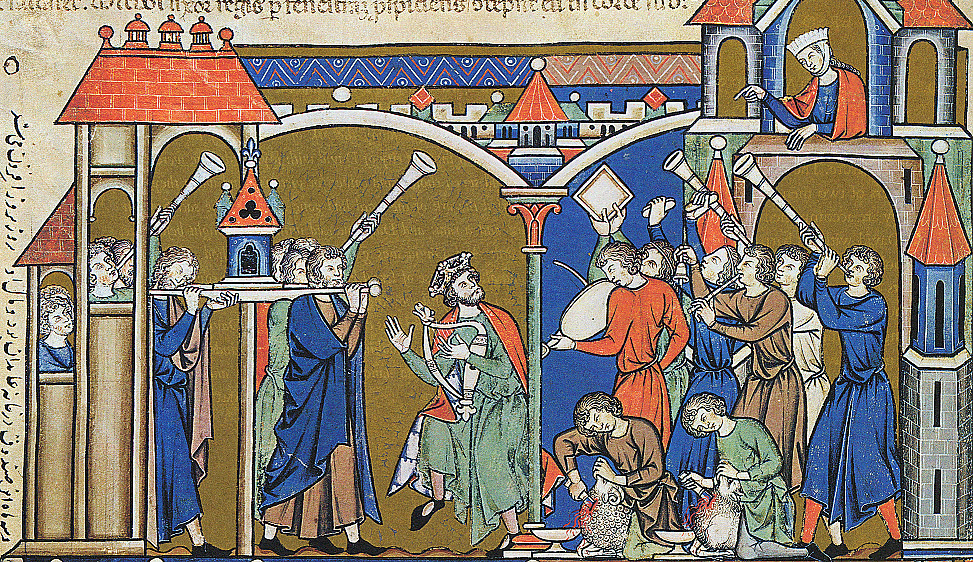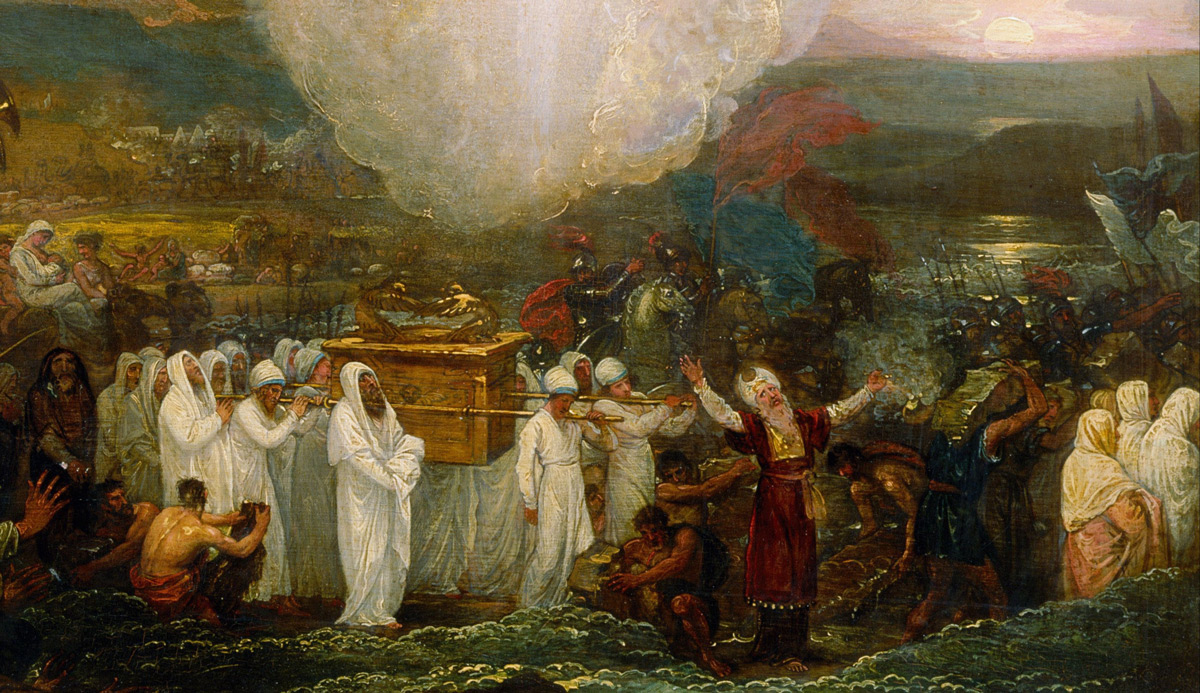Editors’ Note: Our April essay, “The Spirit of Jewish Conservatism,” by Eric Cohen, elicited such strong reactions, both in our pages and elsewhere, that we decided to continue the debate in the form of a symposium. Over the course of this week, we’re presenting brief reflections on Cohen’s thesis by 37 leading Jewish and non-Jewish thinkers. Today’s group comprises Daniel Gordis, Michel Gurfinkiel, Dan Polisar, Shlomo Riskin, Amos Yadlin, Harvey Mansfield, Asher Lopatin, and Dov Wagner.
———
Daniel Gordis: What Hope for Non-Orthodox Jews?
All of us who care about the Jewish future—conservatives or liberals, religious or secular—are in Eric Cohen’s debt for pointing to the crisis of intellectual shabbiness in Jewish life and calling for an embrace of conservative positions that he sees as reflecting Judaism’s core values. Even those who disagree with him, by asserting their own positions, will enrich the discourse; and that, too, will be thanks to him.
In what community, though, can Cohen’s revival unfold? “Venerable religious movements like Reform and Conservative Judaism,” he writes, “are in steady decline, with membership rolls sinking and synagogues closing.” Nevertheless, he is not calling for a specifically Orthodox-conservative revival. “Jewish conservatism is meant to create a big-tent community of values and ideas,” he insists, and does not require “either embracing or denying Orthodox theology or ritual obligations.” That is critical, for, as Cohen himself notes, Orthodoxy “still makes up by far the smaller part of today’s American Jewry, and the demographic tide runs against it.”
Yet Cohen’s hopes for a not-exclusively-Orthodox revival raise a question. Why should non-Orthodox Jews seek intellectual richness for their conservative worldview specifically in the Jewish tradition? After all, some American Jewish conservatives locate their intellectual roots in Christian sources, others in continental philosophy, still others in secular political thought. If Cohen hopes that non-Orthodox Jews will turn to the Jewish tradition, and give it primacy over others, that primacy is in need of a non-theologically based argument that will appeal to and convince a wide swath of Jews. So far, nothing we have tried has worked.
“A new Jewish conservatism must be rooted in the traditions and experiences of the Jewish people,” Cohen says, which I take to include the serious examination of Jewish texts. Yet ever since the emancipation of the Jews in mid-19th-century Europe, non-Orthodox varieties of Judaism have failed to create textually literate laypeople. There are exceptions, of course, but they prove the rule. Liberal Judaisms of all sorts need to ask themselves why that is the case, and why Jewish textual literacy in America is essentially the province of the Orthodox. Is it the stark disconnect between the way of life of most liberal Jews and the way of life that Jewish texts typically advocate? Is it the thousands of hours that must be devoted to the textual endeavor, particularly in children’s early years?
In asserting that his hoped-for conservative revival need not be exclusively or even predominantly Orthodox, Eric Cohen thus also prods us to think about the viability of a Judaism without classical theological tenets at its core. Can such a Judaism sustain itself? We do not know. Yet the stakes involved are high indeed. If Cohen’s essay should engender a conversation about this issue as well, his contribution to our collective discourse will have been all the greater.
Daniel Gordis is senior vice-president and Koret distinguished fellow at Shalem College in Jerusalem and the author of, among other books, Menachem Begin: The Battle for Israel’s Soul.
———
Michel Gurfinkiel: The Moment is Ripe
I’ve always considered it self-evident that Judaism is most at home with conservatism, both as a worldview and as a modern political movement.
How so? Conservatives can be defined first and foremost as anti-utopians. They tend to think that communities and nations are best organized from the bottom up—in a piecemeal, self-adjusting, idiosyncratic way—rather than from the top down through an all-embracing rationalism imposed by means of social engineering. Accordingly, conservatives pay more attention to means than to ends; tend to trust established elites unless proved ineffectual or corrupt; and value tradition as a time-tested repository of human experience.
To me, all this sounds pretty compatible with Judaism. The normative Jewish political tradition, as outlined by the ancient rabbis in the Talmud, warns against anarchy and chaos, but also against excessive trust in government; stresses that deeds are more consequential than theory, and that the fulfillment of God’s teaching is inextricably entwined with the duty to take care of earthly fundamentals; posits tradition as non-negotiable and yet is ready to amend and adapt many parts of the Torah for pragmatic reasons; and, while never relinquishing the Jewish people’s right to the land of Israel, takes into account the role of what we would now call international law.
Such views went uncontested among Jews for centuries—because they were handed down by the rabbis and because they fit the conditions of life. Surviving as a minority within a frequently hostile majority required a healthy dose of no-nonsense realism. The habit remained in place even after the advent of constitutional regimes: once accorded civic rights, Jews were mainly loyalists, whatever the government in charge, and usually more at ease with moderately-minded conservatives than with the extremes of either right or left.
In many countries, Jews did eventually turn leftward—but often less as a matter of choice than in response to Gentile attitudes and conduct: parties of the right were less welcoming than parties of the left. Dire economic conditions also rendered the growing Jewish proletariat susceptible to the lure of socialist utopianism. Later, as Jews began to climb socially through access to the professions, many tended to adopt modernist or “progressive” attitudes. The rise of Nazism, followed by World War II and the Holocaust, solidified the Jewish attachment to liberal democracy, further confirmed by the birth of Israel in 1948.
But the left moment in Jewish history could not last. Global prosperity gradually extinguished most Jewish poverty in the West, and with it much Jewish social utopianism. Communism, in the form mainly of the Soviet Union, proved radically inhospitable to Jews and implacably opposed to Israel. Eventually, social democrats and liberals would also distance themselves from Zionism, Israel, and even the Jews, dealing a further blow to previous generations’ illusions.
As of today, the majority of Jews in Israel, France, and Britain vote for conservative parties. Even in the U.S., a conservative minority has been growing in numbers and influence. Although two out of three American Jews still define themselves as liberals rather than conservatives, and tend to support, no matter what, the Democrats over the Republicans, there are signs that things may be changing even in this respect. When it comes to Israel’s survival and security, everyone knows that Republicans are now the friendlier of America’s two parties.
Among younger American Jews, most have been to college or are now in college, where it is hard to escape the clamorous anti-Israel and anti-Semitic atmosphere—of which they themselves are targets. Meanwhile, on the positive side of the ledger, Birthright and similar initiatives are reconnecting American Jewish youth with Israel and the Jewish people, even as Chabad and the modern-Orthodox movement provide attractive homes on campus for young Jewish seekers of affirmative purpose.
The moment, in other words, is ripe for an infusion of “the spirit of Jewish conservatism”—perhaps even riper than Eric Cohen imagines. What does it signify, after all, when a conservative Israeli prime minister is invited repeatedly to address the U.S. Congress on the most vital issues affecting both the Jewish state and the entire democratic West, and is received with overflowing warmth and applause? The answer is blowing in the wind.
Michel Gurfinkiel is the founder and president of the Jean-Jacques Rousseau Institute, a conservative think tank in France, and a Shillman/Ginsburg fellow at the Middle East Forum.
———
Daniel Polisar: Jewish Conservatism and the National Memory
Eric Cohen makes Jewish nationhood a core element of Jewish conservatism, lays out the imperative of defending Israel while simultaneously keeping it Jewish, and cites the creation of “national memory” as crucial for success in this dual mission. Accordingly, he calls for a “perpetual return to the foundational sources of the Jewish people, especially the Hebrew Bible, and the creative re-interpretation of the Zionist founding.”
In that spirit, Jewish conservatives must appreciate that the Bible helped sustain our nation by presenting a breathtaking array of figures human in their weaknesses, yet genuinely heroic. Abraham leaves Canaan for Egypt at the first sign of famine. Moses strikes a rock in anger and is barred from the promised land. David commits adultery and covers it up with murder. Yet they are great men who founded, respectively, our faith, nation, and country. Our admiration for these and other biblical giants, and our resulting love for the book they animate, carried us through exile and fueled the return to Zion.
Yet today’s Israelis have not heeded the Bible’s example of making great, flawed men into heroes, instead turning our nation-builders into partisan figures denigrated by many. Theodor Herzl, visionary of the Jewish state, is dismissed by religious Zionists as secular; Chaim Weizmann, father of the Balfour Declaration, snubbed by Labor Zionists as an equivocator; Ze’ev Jabotinsky, a towering thinker, rejected by liberals as a hawk. David Ben-Gurion, the irreplaceable founder, is castigated for numerous defects—as when Meir Soloveichik, responding to Cohen, declares: “A man who had no love or even admiration for 2,000 years of Jewish tradition cannot be regarded as a hero of Jewish conservatism.” Israel’s founding is thus bereft of great men, leaving a chasm where collective pride belongs.
America, by contrast, derives strength and unity from its founding fathers—Franklin, Washington, Adams, Jefferson, Madison, Hamilton—extraordinary, flawed rivals lauded across the spectrum today for creating the republic. In keeping with Yuval Levin’s dictum that Jews have much to offer the West and much to receive, we Israelis should learn from Americans how to view our founders as the greats they were. Since egalitarians are loath to set any individual above his fellows, and universalists are hesitant to give credit to builders of nations, it is up to Jewish conservatives to give Zionist heroism its due.
This means doing the historical-cultural spadework to reveal the grandeur of leaders denigrated by partisan mudslinging, and applying a realist view of human nature to look past the flaws of our founders, especially those on the “other” side. In rendering our nation-builders the object of collective admiration, Jewish conservatives can contribute mightily to our “national memory” and our people’s spirit.
Daniel Polisar is provost of Shalem College, the first liberal-arts college in Israel. He writes about Israeli society, Middle Eastern politics, and higher education.
———
Shlomo Riskin: Noble and Inspiring—but Not Enough
In his deeply thought-provoking essay, Eric Cohen sets out to strengthen both conservative political ideas and traditional Judaism through an emphasis on their shared “core values” of family, national pride, and economic freedom. In published responses to Cohen’s essay, both Yoram Hazony and Meir Soloveichik take Cohen to task for not listing faith in God as a core value—to which Cohen has countered that while “God-centered Jews should be the first to embrace the spirit of Jewish conservatism,” such Jews also “come to know God in radically different ways.” That being the case, he believes it more productive to converge on a “shared vision of human nature.”
Here, precisely, is the point of my own counter-argument: remove God from the equation, and any semblance of political idealism, commitment to nation, or even self-sacrifice for the sake of familial continuity goes down the drain. Devoid of a purposeful Creator, life becomes “a tale told by an idiot, full of sound and fury, signifying nothing.” If so, why bother to seek to better society or mankind? Far better to yield to hedonism and the self—or opt for suicide.
On a societal scale, indeed, those two options go together. During my first visit to Germany a little over a decade ago, I was struck by the noticeable dearth of children on the streets and even in the parks. An obliging professor explained to me that most Europeans are enamored of their comfortable lives and averse to noise and messiness. Besides, he added, children are a great expense, require substantial investments of adult concern and energy, and often give back very little in return.
Indeed. Unless you are passionate about continuing your narrative into the next generations, unless you read meaning into history by leaving a legacy for the future, there is no compelling reason for marriage or family, and it simply doesn’t “pay” to bring children into the world.
Jewish conservatism stands athwart all of this. But from where does it derive its authority?
In his initial encounter with God, Abraham the first Hebrew was promised, and was both commanded and empowered to fulfill, a divinely mandated mission: “I will make you a great nation; I will bless you and you will be a blessing, . . . and through you will all the families of the earth be blessed”(Genesis 12:3). The content of that blessing to the nations is spelled out six chapters later: “For I have loved/chosen [Abraham] because he commands his children and his household after him to keep the pathways of God, to do acts of righteous compassion and moral justice” (18:19)
This command is not just a “value” or an “idea.” For believing Jews, the future world depends on our fulfillment of this God-given mission; if we don’t succeed in time, the world will destroy itself. It may be debated whether our mandate includes only the teaching of ethical monotheism to a world that must become moral or all 613 commandments to a world that must become holy. In either case, we have been promised eventual success, and therefore feel empowered to succeed.
Taking my own cue from a worldview of religious pluralism encapsulated in the biblical episode of the Tower of Babel, I do not believe it necessary to be a fully observant Jew in order to be a Jewish conservative (as might be suggested by Meir Soloveichik). But I do believe the values and ideas of Jewish conservatism, noble and inspiring as they are, are not in themselves sufficient. What must inform and impel them is the command to be an Abrahamic Jew: covenanted by God to bless the families of the earth with the inalienable right to freedom, with compassion and righteousness, and with moral justice.
Shlomo Riskin is chief rabbi of Efrat in Israel and chancellor of the Ohr Torah Stone network of high schools, colleges, and graduate programs in the U.S. and Israel.
———
Amos Yadlin and Uri Sadot: Israel Needs Bi-Partisan American Support
Of the many strong points made by Eric Cohen in “The Spirit of Jewish Conservatism,” one in particular involves an issue closely followed by policy circles in Israel: namely, the worrisome signs of declining support for Israel among American liberals and America’s liberal Jews.
For many years now, and more vocally since Benjamin Netanyahu’s and Barack Obama’s entry into office, many American Jews have grown increasingly alienated from Israel, with some becoming its fiercest critics both inside and outside of government. Since American support is, second only to the IDF, Israel’s most important strategic asset, such corrosive trends provide considerable grounds for concern within Israel’s strategic community.
America is Israel’s indispensable ally, and Israel therefore needs to have, and works hard in order to secure, bi-partisan American support. At the same time, and above all, Israel is a sovereign state that will not compromise its principal national interests or values in order to win support from others, especially on issues of self-determination and self-defense.
Looking ahead, can we predict how American politics will look a decade or two into the future? Not easily. Even among American conservatives, who in recent years have shown the firmest and most steadfast support for Israel and its policies, isolationist sub-currents exist that may someday prove problematic in terms of Israeli interests. Nor can one say with confidence what direction the Democratic party may take under future presidents, or whether the current tendency toward weakening support will continue, grow, or reverse itself.
Given both this uncertainty and the importance of American backing, it would be imprudent of Israel to neglect either side of the American political spectrum, even in periods when constructive engagement with Washington seems difficult if not impossible. In the long run, Israel must strive to remain above internal American divisions, and for American Jews, the security of Israel should always remain paramount.
Amos Yadlin, who formerly served as chief of military intelligence for the Israel Defense Forces, is the director of the Institute for National Security Studies (INSS) in Tel Aviv. Uri Sadot is a research fellow at INSS.
———
Harvey Mansfield: The Highest Standard
Not being a Jew, I watch Jews from outside, and being a professor at a prestigious university I see quite a few of them. That I see so many tells me something I would have known anyway from Jewish history: that Jews have special respect for the intellect. They admire it in others and cultivate their own. They have active brains and agile judgments, and they almost always give the impression of being nobody’s fools.
It is true that Irving Kristol called Jews “politically stupid,” an insult I would never utter. Also true is Milton Himmelfarb’s quip that Jews live like Episcopalians and vote like Puerto Ricans. But I will not stoop to urge Jews to vote to protect their wealth and status. Instead, I will argue to them that conservatives and Republicans, though often known as “the stupid party,” respect the intellect more than do liberals and Democrats, and thus deserve the support of Jews who share this respect.
To respect the intellect is to hold high standards insisting on two things: differences of intellect in humans and the importance of intellect to humans, thus together the importance of those differences. This is why Jews are great believers in education, knowing that education draws out of us the intellect that is the highest element in us, and that in doing so it makes merit, and degrees of merit, apparent.
Now if you look at the two parties, you see that liberals have very high expectations for the results of applying the intellect to politics and society, which in sum they call progress, and themselves progressives. To gain these results they employ experts of various types with intellects gifted in management and techniques of rational control. Rational control is the use of reason without appealing to reason in those being controlled, but rather working on their subconscious motives or sub-rational interests. A recent name for rational control is “nudging.”
So liberals have high expectations from applying the intellect, but low standards in appealing to it. On the one hand, they believe in reason; on the other hand, they teach self-esteem, practice grade inflation, and seek to make citizens live in obedience to experts.
Conservatives reverse this dual policy; they have low expectations for the application of expertise and high standards in appraising intellect. They know that excellence is precious but also difficult, rare, and fragile. Knowing this, they expect less of society in general and—here is the crucial point—they do not try to boss it around into compliance with expert reason. Conservatives show more respect for each person’s, for the average citizen’s, reason. They know that, to be responsible, everyman’s reason needs the guidance of the highest standard so that everyman does not descend to a life of mere calculation and material enjoyments, as he surely will do under the tutelage of the experts. In practice this help comes most reliably from the law and authority of God or at least some belief in what is sacred, including sacred rights.
Those who respect the intellect run the risk of over-cleverness, and it is easy and natural to make fun of those who stand for propriety and responsibility. That is why there are Jewish comedians along with Jewish intellectuals. But in America now, nothing is more stupidly sacred than liberal political correctness at its universities (and elsewhere, too). Just as conservatism shows more respect for the intellect than does liberalism, so, too, for critical types, does it indicate fatter targets for mockery.
Harvey Mansfield is the William R. Kenan, Jr. professor of government at Harvard. His books include Machiavelli’s Virtue, Manliness, and Tocqueville: A Very Short Introduction.
———
Asher Lopatin: Most Jews Share the Same Values
My parents were conservationists, caring to preserve the natural world and also the great Jewish traditions they inherited. They were not “conservatives” a political stand, but rather Hubert Humphrey liberals, caring for the poor and those discriminated against while at the same time caring for Israel and democracies around the world. They saw no contradiction between being part of the liberal tradition and believing strongly in the value of family (Daniel Patrick Moynihan), Jewish peoplehood (Abraham Joshua Heschel), or capitalism and free markets (exemplified in free-trade agreements signed by Presidents Clinton and Obama).
I agree with the essential Jewish ideas of Eric Cohen’s beautiful essay, “The Spirit of Jewish Conservatism.” Where I disagree is with his belief that Jewish core values align with a specific political tradition rather than with something greater: something that most mainstream American and Israeli Jews, liberal and conservative, subscribe to.
Cohen is trying to take what has become Jewish motherhood-and-apple-pie—the sanctity of an Israel that can defend itself, the sanctity of the family, and pride in Jewish peoplehood—and make that the sole domain of people who identify politically as conservative. He feels that the “progressive” liberal faith has weakened Judaism, both in America and Israel.” There I disagree. Liberal, conservationist, and conservative can all find their foundations in the Jewish tradition. As an Orthodox free-market libertarian, I still think it was the socialist, secular kibbutzniks who provided the backbone to establish the state of Israel—and that they, too, as un-Orthodox as they were, still found their way of life in the teachings of our tradition.
Eric Cohen is certainly within his rights to say that his understanding of the Jewish tradition has inspired him to adopt a specific political viewpoint. But he must recognize that an equally inspired reading of our Jewish heritage may in turn inspire other and—from a Jewish point of view—equally valid political positions.
Rabbi Asher Lopatin is president of Yeshivat Chovevei Torah Rabbinical School in New York.
———
Dov Wagner: Ideas Alone Won’t Do the Job
Eric Cohen presents a compelling argument for a unifying and cohesive conservative voice in addressing the major concerns of the Jewish people. In doing so, he formulates a number of fundamental principles, emphasizes certain “core values”—mainly clustered around the themes of family, nation, and economy—and highlights the need to focus on those values as a shared response to the challenges of our times.
But ideas and principles and values cannot do the job alone; they require a delivery method. How can the ideas advocated by Cohen compel the interest of that high proportion of today’s Jews who have been brought up and educated into a completely different mindset? In particular, how can today’s college student—to whom the concept of Jewish exceptionalism, or even of a unique Jewish identity, seems almost heretical, and for whom the conception of the Jewish family is framed by pop culture—be inspired suddenly to build an identity for himself or herself around the values of family, survival, and peoplehood?
The means vary, and they need to be discussed. Is the best approach one of intellectual persuasion? Community engagement? Chabad-style efforts based on mitzvah campaigns and experiential learning? Some combination of these and other methods? Without careful thought and planning, the attempt to infuse a political ideology with traditionalist values, however praiseworthy, can end up alienating the very audience it intends to engage.
Speaking personally, I have found that ideas about family and tradition that students would ordinarily reject out of hand can become the subjects of meaningful discussion and debate in the context of experience-based programs like Chabad on Campus, Birthright Israel trips, and the like. Much becomes possible after a personal connection has been made, as when a young person becomes invested in a positive relationship with a rabbi/rebbetzin or teacher. Only then does the door open to honest examination of ideas rather than a reflexive retreat to slogans and preset attitudes.
It’s hard work; “retail” work—but the rewards are commensurately great.
Dov Wagner is the rabbi of the Rohr Chabad Jewish Center at the University of Southern California in Los Angeles.
———
Coming tomorrow: Jonathan Rosenblum, Yehudah Mirsky, Aharon Ariel Lavi, Michael Weingrad, Moshe Koppel, R.R. Reno, Bentzion Brook, and Shmuel Trigano.
More about: Jewish conservatism








